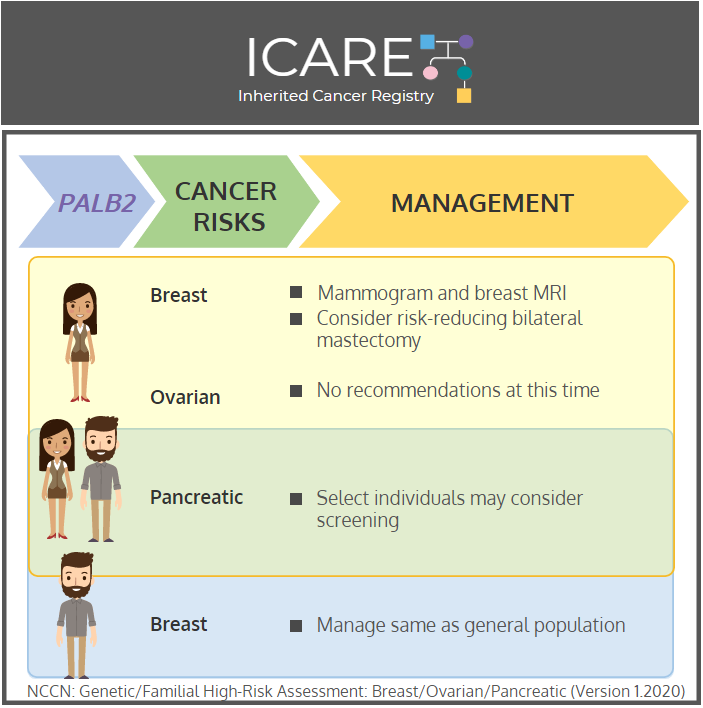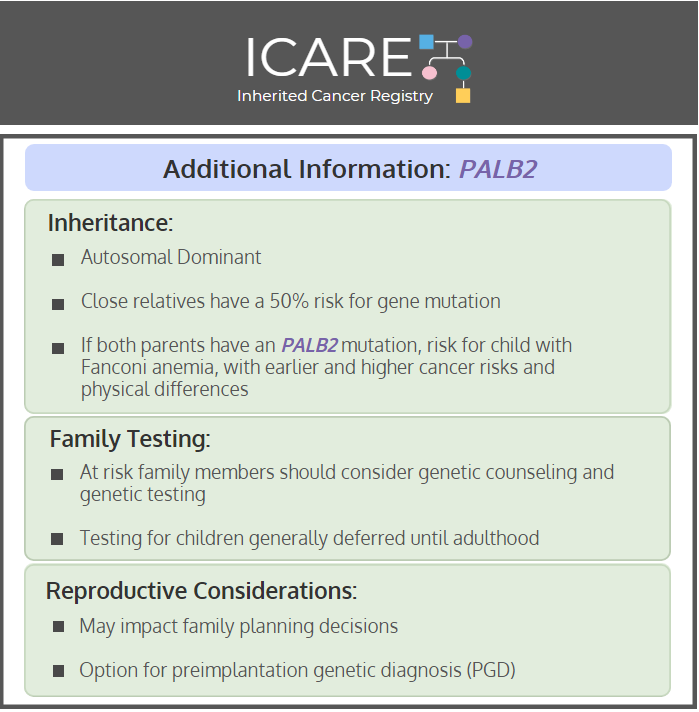
 Gene: PALB2
Gene: PALB2
Cancer Risks and Management (per NCCN version 1.2020):
Women:
Breast cancer risk: Elevated at 53% – Recommend annual breast MRI with contrast starting at age 30, and annual mammogram with consideration of tomosynthesis starting at age 30; Consider risk-reducing mastectomy.
Ovarian cancer risk: Elevated at 5% – Manage based on family history.
Men and Women:
Pancreatic cancer risk: Elevated at 2%-3% – Consider MRI/MRCP or endoscopic ultrasound for PALB2 carriers with a family history of pancreatic cancer in first-degree relative.
Men:
Breast cancer risk: Elevated at 1% – Manage same as general population.
Prostate cancer risk: Up to 20% – Recommend PSA screening and digital rectal exam starting at age 40.
Inheritance: Autosomal dominant, thus parents, full siblings, and children have a 50% risk for the gene mutation. If both parents have a PALB2 mutation, the child is at risk for autosomal recessive Fanconi anemia.
Family Testing: At-risk family members should consider genetic counseling and genetic testing. For adult-onset conditions, recommend waiting to perform genetic testing on minors are at least 18 years old.
Reproductive Considerations: Option for preimplantation genetic diagnosis (PGD) may be available to ensure future generations do not inherit the known gene mutation. PGD is a procedure available for certain gene mutations to screen the embryo prior to achievement of pregnancy.
Check out the recent PALB2 article on cancer risks at https://ascopubs.org/doi/full/10.1200/JCO.19.01907 and the full management guidelines by creating a FREE account at https://www.nccn.org/professionals/physician_gls/pdf/genetics_bop.pdf
